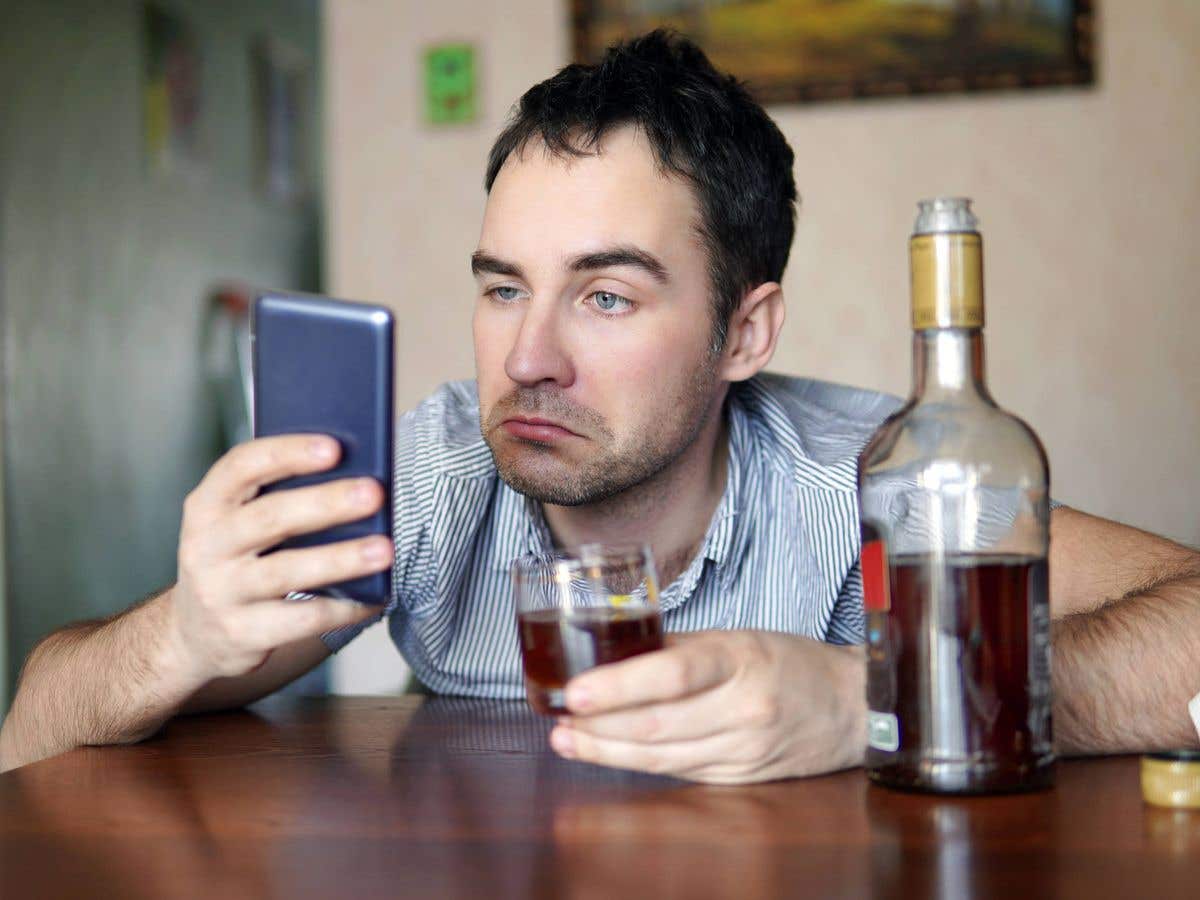Are you drunk? Your smartphone knows, study finds
Research has revealed the remarkable potential of smartphones in predicting alcohol intoxication with astonishing accuracy.

[Nov. 10, 2023: Staff Writer, The Brighter Side of News]
Research has revealed the remarkable potential of smartphones in predicting alcohol intoxication with astonishing accuracy. (CREDIT: Creative Commons)
In an era where smartphones and smart speakers have become integral parts of our daily lives, these ubiquitous devices may soon serve an unexpected role – detecting alcohol intoxication based on changes in a person's voice.
A groundbreaking study conducted by researchers at Stanford Medicine and the University of Toronto, published in the Journal of Studies on Alcohol and Drugs, has revealed the remarkable potential of these everyday gadgets in predicting alcohol intoxication with astonishing accuracy.
The study, which focused on 18 adults aged 21 and above, aimed to explore the connection between alcohol intoxication and vocal patterns. Participants were administered a weight-based dose of alcohol and assigned a set of tongue twisters to read aloud. Voice recordings were taken at intervals ranging from before consuming alcohol to seven hours after. Simultaneously, the researchers monitored the participants' breath alcohol concentration.
The key innovation lay in the detailed analysis of the voice recordings.
Related Stories:
Using advanced digital programs, the researchers isolated the participants' voices, breaking them into one-second increments. This granular approach allowed them to scrutinize various voice parameters, including frequency and pitch.
Remarkably, the results exceeded expectations. Changes in participants' voice patterns correlated with alcohol intoxication levels with an astonishing 98% accuracy. Dr. Brian Suffoletto, the lead researcher and associate professor of emergency medicine at Stanford, expressed his astonishment at the accuracy of their model, attributing it to the application of cutting-edge advancements in signal processing, acoustic analysis, and machine learning.
Dr. Suffoletto emphasized the potential of this technology for "just-in-time interventions" to prevent accidents and injuries resulting from alcohol intoxication, particularly in situations like motor vehicle accidents. The key to effective intervention lies in tools that are both easy to use and readily available, and smartphones and smart speakers fit this description perfectly.
Smartphones may be able to detect alcohol intoxication by analyzing voice patterns. (CREDIT: Journal of Studies on Alcohol and Drugs)
Intriguingly, the researchers envisioned a future where a combination of sensors, including gait analysis, voice recognition, and even texting behavior, could be integrated into surveillance tools. Dr. Suffoletto highlighted the statistical advantages of such integration, as varying sensitivities and specificities could enhance overall performance. Moreover, these passive data collection methods can capture moments when individuals are not speaking but may be walking, stationary, or texting.
However, while the preliminary findings are promising, Dr. Suffoletto acknowledged that further research on a larger scale, encompassing individuals with diverse ethnic backgrounds, is essential to validate voice patterns as a reliable indicator of intoxication. Additionally, he suggested collaboration with companies already collecting speech samples through smart speakers to strengthen the research's foundation.
Comparison and Confusion Matrix based on 1-second voice samples. (CREDIT: Journal of Studies on Alcohol and Drugs)
Furthermore, Dr. Suffoletto urged the National Institutes of Health to take the lead in developing data repositories for these emerging digital biomarkers. Such repositories would facilitate the creation of robust and reliable algorithms for detecting alcohol intoxication through voice analysis.
The overarching goal of this pioneering research is to develop an intervention system that people are willing to use, ultimately saving lives by preventing accidents and injuries associated with alcohol intoxication. Dr. Suffoletto emphasized the critical importance of timing in these interventions. For example, providing a gentle reminder of consumption limits as someone initiates drinking can be highly impactful. However, the efficacy of such interventions diminishes significantly once an individual is significantly intoxicated.
The classification scheme of the proposed algorithms. First, the voice records are separated into foreground and background vocals to remove noise and vocals in the background. (CREDIT: Journal of Studies on Alcohol and Drugs)
As society becomes increasingly interconnected through technology, leveraging the capabilities of smartphones and smart speakers for public health interventions has the potential to revolutionize how we address issues related to alcohol intoxication. These devices, which are already an integral part of our lives, could serve as a silent, ever-watchful guardian, alerting individuals when they may need help.
The study conducted by researchers from Stanford Medicine and the University of Toronto highlights the transformative potential of voice analysis through smartphones and smart speakers in detecting alcohol intoxication. With an astonishing 98% accuracy rate in predicting intoxication levels, this innovative approach holds promise for reducing accidents and injuries related to alcohol consumption.
While further research and collaboration are needed to validate and refine this technology, it represents a significant step towards a safer and more responsible drinking culture. The integration of passive data collection methods, coupled with advancements in machine learning, offers a glimpse into a future where our devices actively contribute to our well-being, ensuring that we make responsible choices, especially when it matters most.
Note: Materials provided above by The Brighter Side of News. Content may be edited for style and length.
Like these kind of feel good stories? Get the Brighter Side of News' newsletter.
Joseph Shavit
Head Science News Writer | Communicating Innovation & Discovery
Based in Los Angeles, Joseph Shavit is an accomplished science journalist, head science news writer and co-founder at The Brighter Side of News, where he translates cutting-edge discoveries into compelling stories for a broad audience. With a strong background spanning science, business, product management, media leadership, and entrepreneurship, Joseph brings a unique perspective to science communication. His expertise allows him to uncover the intersection of technological advancements and market potential, shedding light on how groundbreaking research evolves into transformative products and industries.



